Commercial HVAC maintenance systems are designed to provide a comfortable and safe environment for personnel working in an industrial or commercial facility. HVAC systems are now a crucial element of commercial and industrial establishments since they can have a significant positive impact on worker productivity. Hence, companies should make use of leading industrial HVAC solutions with proper boiler inspector training to keep their systems in good running order.
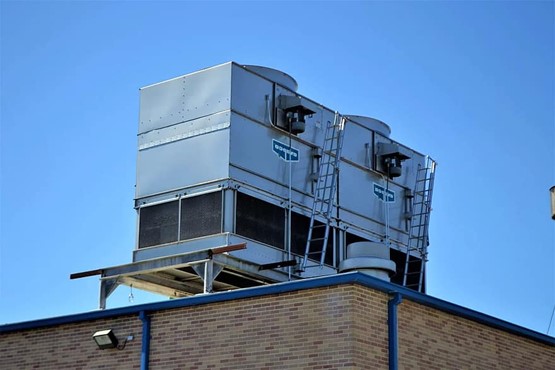
Depending on weather conditions and the working environment, commercial HVAC systems may be subjected to heavy loads. Although commercial HVAC systems are heavy duty equipment they require regular preventive maintenance to work reliably. Commercial HVAC equipment comprises both mechanical and electrical components that will be subjected to wear and tear every day. Regular maintenance through industrial HVAC solutions is necessary to prevent unexpected breakdowns and shortened lifespans.
Here are the most common industrial HVAC problems that are routinely encountered.
1. Compressor Issues
The compressor lies at the very core of the HVAC system. It is the workhorse that powers air conditioners and heat pumps. Hence, any problems with the compressor are bound to have a major impact on the HVAC system in question.
Leaks are some of the most common problems that prevent compressors from operating efficiently. Hence, you must look out for signs of leaks like stagnant oil accumulating near service ports.
Another problem is a scrambled compressor. In this case, you must look for an audible rather than a visual sign. Scrambled compressors run much more loudly than normal compressors do. There will be a loud humming sound which may indicate leakage of the refrigerant.
2. Condenser Problems
Dirty or clogged condenser coils can hinder the flow of refrigerant and will thus disrupt the entire working cycle. Your compressor will then have to work much harder for the same refrigerant flow rate.
Besides internal blockages, dirt and debris may also accumulate on the outside of condenser coils. This is easily visible. You should thus clean up condenser coils regularly to prevent the buildup of dust and debris. This material is undesirable because it interferes with the heat transfer capabilities of the condenser coil. The coil will be unable to reject heat efficiently to the surroundings. In other words, it will not be able to do its job properly which helps to complete the working cycle.
3. Condenser Fan
There could also be an issue with the condenser fan. There can be various problems with the fan such as misdirected airflow, bad connections and wiring, strong fan blade vibration, short cycling from thermal overload and bearing noise.
4. Economizer Problems
You can be fairly certain that the economizer is malfunctioning if it does not engage when the outside temperature falls under 55 degrees. When the outside air temperature falls below 55 degrees then return dampers should remain shut while outside air dampers should open up. The buildup of dirt is one main reason why economizers fail to work correctly. When debris and dust accumulate on controls, linkages, gears and dampers then there could be an economizer malfunction.
Besides the lack of proper maintenance, the absence or poor condition of outside air filters is a factor behind economizer malfunction. This may be averted through preventive maintenance.
5. Evaporator Problems
One key purpose of air filters is to keep the evaporator coil in good condition. If the air filters are not correctly placed or are too dirty then dust laden air may get through. This air may impinge on the evaporator and deposit dirt on its coils. This is less than ideal because dirt buildup on evaporator coils will prevent them from working properly. Dirt will interfere with heat transfer and thus prevent the evaporator coil from functioning properly. The operational efficiency of the HVAC system will fall.
The condensate drain pan may also undergo problems. If the drain gets clogged then water can accumulate. There will be a buildup of dirt and slime with time if the stagnant water is not cleared. Such a problem can impact air quality and lead to water damage. The drain pan may also start rusting and leaking if the problem is not fixed.
6. Evaporator Fan
Evaporator fans can face several issues that could prevent them from functioning as intended. These issues include but are not limited to locked motor, electrical failure, motor failure, bearing noise and fan vibrations. The belt may also come loose which can bring down rotation speed. This can be easily noticed though since the fan will be visibly slower or may come to a stop.
7. Electrical Problems
Problems with electrical connections will interfere with the flow of electrical power and could shut down key components in the HVAC system. Overheating of wires and connections is a major source of safety concern since this can lead to fire and damaged equipment.
When rust and soot particles from heat exchangers accumulate, the burner efficiency may plunge. There could also be other problems due to this issue like pilot failure and poor combustion from flame roll out.
8. Housing Issues
Most unit housing issues are easily visible so you should be able to spot them in time. These problems may include missing panel insulation, poorly fitting panels and bent panels.
If the HVAC unit is operating near the coast the housing may begin to rust. This is also common with older systems.
Solution
The best way to fix these problems is to catch them as soon as they transpire so that system performance and integrity is not further compromised. Failure to notice these problems in time may lead to bigger complications and be more expensive. That is why it is necessary to collaborate with qualified professionals for regular preventive maintenance since this is the industry best practice for keeping HVAC systems in good shape.
You should get in touch with the premier commercial HVAC service to keep your HVAC investment safe.
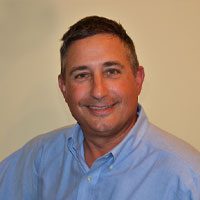 Steve Graves is unmatched in his experience and ability to handle complex energy system solutions for industries from medical to nuclear power plants. He has a relentless focus on servicing the customer by providing HVAC and steam boiler operator training. Steve was responsible for many large scale efforts like bringing the ethanol boiler business to Superior and brings all that experience to Campbell-Sevey. Steve is the utmost professional at his job. His word is his bond.
Steve Graves is unmatched in his experience and ability to handle complex energy system solutions for industries from medical to nuclear power plants. He has a relentless focus on servicing the customer by providing HVAC and steam boiler operator training. Steve was responsible for many large scale efforts like bringing the ethanol boiler business to Superior and brings all that experience to Campbell-Sevey. Steve is the utmost professional at his job. His word is his bond.

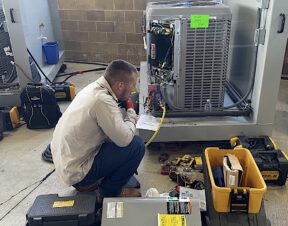
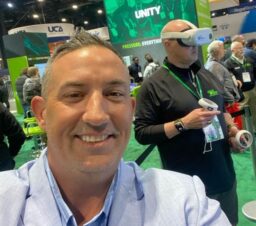
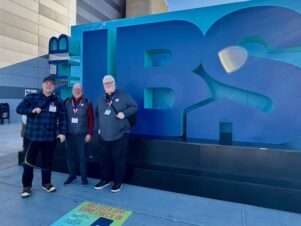
Join the conversation: